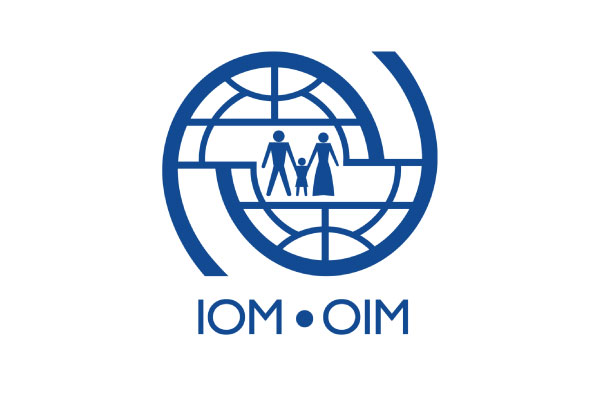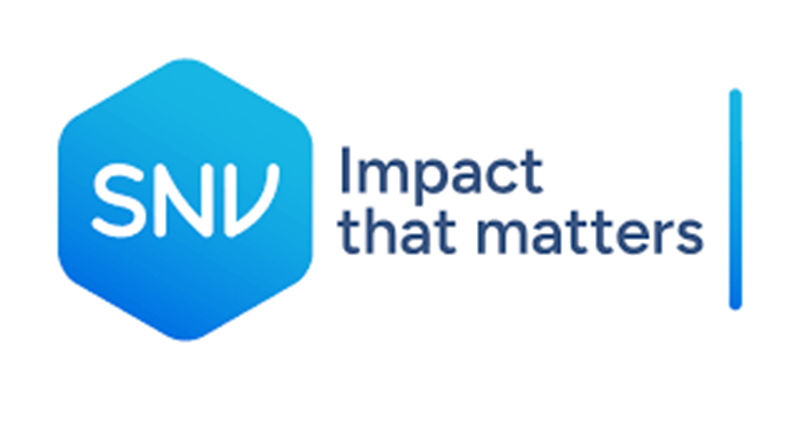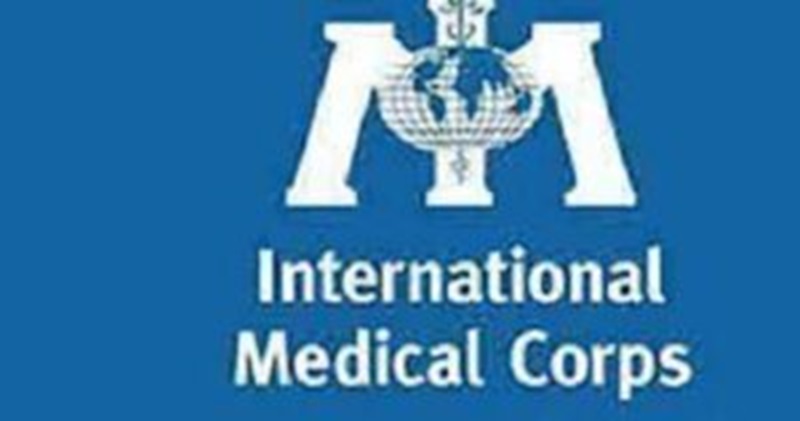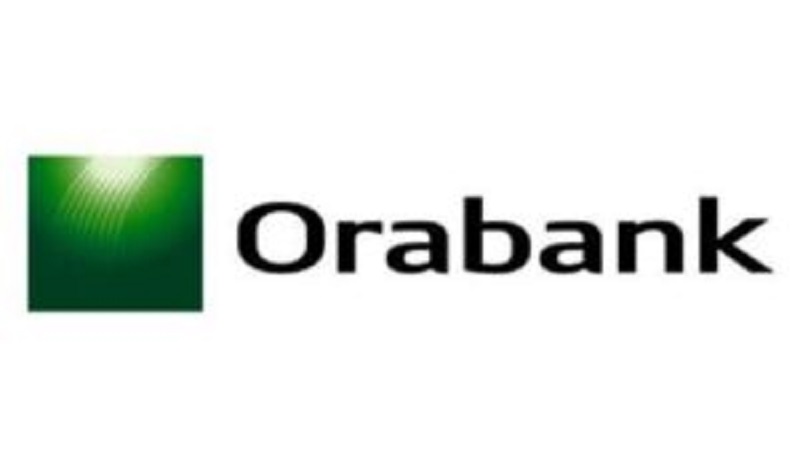Créée en 1951, l’OIM est une organisation apparentée aux Nations Unies et, en tant que principale agence des Nations Unies dans le domaine de la migration, travaille en étroite collaboration avec des partenaires gouvernementaux, intergouvernementaux et non gouvernementaux. L’OIM se consacre à la promotion d’une migration humaine et ordonnée pour le bénéfice de tous. Pour ce faire, il fournit des services et des conseils aux gouvernements et aux migrants.
POUR LE CONTRAT DE CONSULTANCE :
Recrutement d’un cabinet externe pour la réalisation d’une étude d’impact du programme d’engagement communautaire mis en œuvre par l’OIM depuis 2016, mesurant les changements obtenus en termes de connaissances, attitudes et pratiques des acteurs locaux en matière de sécurité et de gestion des frontières dans les régions de Zinder, Diffa, Agadez, Tillabéri, Dosso, Tahoua et Maradi **
- Lieu d’affectation du consultant : Niger**
- Durée : La durée du contrat de consultance est de 3 mois, à partir de la date de signature du contrat. Date de début souhaitée : 2 mai 2022. Date limite de remise du rapport final : 29 juillet 2022
- Nature de la consultance : Consultancy Category B**
- Contexte et portée du projet :
Projet: « Engager les communautés dans la gestion des frontières » (Flintlock) – Phase V
**
Activité
Réalisation d’une étude d’impact du programme d’engagement communautaire mis en œuvre par l’OIM depuis 2016, mesurant les changements obtenus en termes de perceptions, attitudes et pratiques des acteurs locaux en matière de sécurité et de gestion des frontières dans les régions de Zinder, Diffa, Agadez, Tillabéri, Dosso, Tahoua et Maradi
Bénéficiaires
- Communautés frontalières ;
- Autorités administratives et les forces de sécurité en charge des zones frontalières ;
- Les Autorités régionales et départementales chargées de la sécurité et de la gestion des frontières au Niger
- Les autorités nationales en charge de la gestion des frontières et de la police de proximité
Zone d’intervention
- Dosso (frontière Nigéria, Bénin) : Communes et villages frontaliers des Départements de Doutchi, Tibiri, Dioundiou, Gaya ;
- Maradi (frontière Nigéria) : Communes et villages frontaliers des Départements de Maradounfa, Guidan Roumji, Tessaoua, Gazaoua et Aguié ;
- Tahoua (frontière Nigéria, Mali) : Communes et villages frontaliers des Départements de Birni N’Konni, Madaoua, Malbaza, Tassara et Tillia ;
- Zinder (frontière Nigéria) : Communes et villages frontaliers des Départements de Gouré, Dungass et Kantché ;
- Diffa (frontière Nigéria, Chad) : Communes et villages frontaliers des Départements de Goudoumaria, Mainé-Soroa, Diffa, Bosso, N’Guigmi et N’Gourti ;
- Agadez (frontière Algérie, Libye) : Communes et villages frontaliers des Départements d’Arlit, Iférouane, Thirozérine et Ingall ;
- Tillabéri (frontière Mali, Burkina Fasso) : Communes et villages frontaliers des Départements de Ayérou, Bankilaré, Gothèye et Téra ;
Contexte
En tant qu’agence des Nations Unies pour les migrations, l’Organisation Internationale pour les Migrations (OIM) pose le principe selon lequel les migrations s’effectuant en bon ordre et dans le respect de la dignité humaine sont bénéfiques aux migrants et à la société.
Au Niger, l’OIM compte plusieurs projets contribuant aux thématiques suivantes : la protection des migrants, l’assistance au retour volontaire et à la réintégration, la gestion des urgences humanitaires, la stabilisation des communautés, la lutte contre l’extrémisme violent, la lutte contre la traite des personnes et la gestion des frontières.
In support of IOM’s strategy, the activities of the unit in charge of border management aim to help the Government of Niger to develop the infrastructural, material and institutional capacities of the National Police and all the other forces of defense and border security. As part of its support to the State of Niger, with funding from the United States Department of State, IOM has initiated a project to strengthen institutional and operational capacities in terms of humanitarian and security response to sudden cross-border changes through the development of coherent approaches to border management as well as the promotion of community engagement.
L’engagement communautaire et le lien de police de proximité est une forme de gouvernance locale qui permet de resserrer les maillons de contrôle territorial de l’Etat sur l’étendue du territoire et d’assurer l’application de l’état de droit jusqu’aux frontières internationales du pays, en impliquant les citoyens dans la définition des priorités de l’action publique et en instaurant une redevabilité de l’action publique vis-à-vis des citoyens. Au même titre que l’accès à d’autres services publics ou services de base, l’accès à sécurité, réelle et vécue, est un droit des populations qui doit s’exercer via des canaux bien déterminés et adaptés au contexte local afin de protéger les populations et la souveraineté du territoire, renforcer la présence de l’Etat et œuvrer conjointement à mitiger et adresser les menaces d’ordre sécuritaires, sanitaires ou humanitaires.
After 6 years of innovative programming [1] in the field of community engagement and the development of the bond of trust between border communities and State representatives in remote border areas, IOM wishes to assess the impact of these actions. , identify good practices and recommendations for the improvement of future projects. Through this impact study, IOM wishes to compare the overall situation prevailing before the implementation of said programs and the current situation in the targeted regions, and thus study more closely the effectiveness of community engagement activities on the creating and strengthening links between border communities and local authorities.
The purpose of these terms of reference is the recruitment of an external firm to carry out the said study in the target border areas of the program since 2016.
Main objective
The general objective of this study is to know to what extent the community engagement approach used by the IBM unit of the IOM, since 2016, has made it possible to change the perceptions, attitudes and practices of the targets [2] management intervention and border security in a positive way in the areas of origin, according to an approach adapted to the context.
Specific objectives
- Assess the effectiveness of the community engagement and trust building method deployed by IOM in Niger since 2016 and its suitability for the local context;
- Establish a diagnosis of the initial level of trust between the authorities and the communities;
- Assess the extent to which communities feel safe and protected by authorities;
- Appreciate the willingness of communities to be actors of their own security;
- Highlight the changes brought about by the activities carried out with the aim of strengthening relations between the communities, the administrative authorities and the security forces of the border localities or communes.
- Organization / Unit to which the consultant contributes:
Flintlock Project “Engaging Communities in Border Management”, Phase V, of the Immigration and Border Management (IBM) Division of the International Organization for Migration (IOM).
- Category B consultants: Tangible and measurable results of the assignment:
The following deliverables are expected at the end of the study:
- A database cleaned and ready for archiving;
- A file of graphs and analytical tables linked to the database;
- A final report of the impact study of the community engagement program implemented by IOM in Niger for 6 years;
- A collection of good practices and recommendations to be incorporated into future projects in order to further standardize the approach and disseminate it at the regional level;
- Secondary data and information collected (the results of the surveys compiled) in the form of a presentation sheet by region;
- PowerPoint presentations summarizing the reports;
- A restitution of the conclusions and results of the study.
Payment by installments :
10% – Signature of the contract
50% – Submission of the first draft of the report
40% – Submission of final report
- Performance indicators for the evaluation of results
Expected results
The report of this study combining a quantitative (households) and qualitative (key informants) approach should make it possible to achieve the following results:
- Crucial conclusions on the impact of the community engagement methodology are formulated, with a focus on;
o Changes in the perception/knowledge of border security and management of border communities in the regions of Zinder, Diffa, Agadez, Tillabéri, Dosso, Tahoua and Maradi which were the subject of perception studies during previous phases . This applies in particular:
- the level of trust between civil and state actors;
- the level of knowledge and understanding of the communities as to the means at their disposal to seek State action in their favour;
- the feeling of security in general and the consideration by State actors (particularly FDS) of the needs of the communities;
o Changes in the attitudes of the communities on the one hand and of the authorities on the other hand to initiate participatory mechanisms for consultation and dialogue in the definition of public action in terms of security/safety;
o Changes in concrete practices in terms of border management, social dialogue and cooperation on security issues observed in local communities and local administrations as well as in the actions of the FDS;
- Draw up additional recommendations for national and international actors in order to adapt their actions to better integrate communities and interact with them in order to improve border security and maintain conditions favorable to the fluid movement of people and trade. , development, while protecting the integrity of the territory.
Mission coverage area
The study will focus on the following 7 regions:
- Dosso (Nigeria border, Benin): Communes and border villages of the Departments of Doutchi, Tibiri, Dioundiou, Gaya;
- Maradi (Nigeria border): Communes and border villages of the Departments of Maradounfa, Guidan Roumji, Tessaoua, Gazaoua and Aguié;
- Tahoua (Nigeria border, Mali): Communes and border villages of the Departments of Birni N’Konni, Madaoua, Malbaza, Tassara and Tillia;
- Zinder (Nigeria border): Communes and border villages of the Departments of Gouré, Dungass and Kantché;
- Diffa (Nigeria border, Chad): Communes and border villages of the Departments of Goudoumaria, Mainé-Soroa, Diffa, Bosso, N’Guigmi and N’Gourti;
- Agadez (border Algeria, Libya): Communes and border villages of the Departments of Arlit, Iférouane, Thirozérine and Ingall;
- Tillabéri (Mali border, Burkina Fasso): Communes and border villages of the Departments of Ayérou, Bankilaré, Gothèye and Téra;
Missions of the External Cabinet
Under the supervision of the project manager, based within the Immigration and Border Management (IBM) unit at the OIM Niger mission in Niamey, the work of the external firm will consist in contributing to the realization of an impact study on the five (5) classes of shares below:
- Action 1 – Document Review : Collection and examination of secondary data on the IOM community engagement methodology, the local context and the activities carried out in Niger, in consultation with the key interlocutors of the IBM unit of the IOM Niger mission , the regional office in Dakar and the headquarters in Geneva. This review will make it possible, in addition to examining the relevance and finesse of the method of action in the local context, on the basis of perception studies and existing reports, to reconstruct the reference situation of the intervention in order to establish the baseline for comparison;
- Action 2 – Research protocol / methodology: Production and submission of a research protocol or study methodology including, among other things, a schedule for the mission and the following collection and analysis tools: the method sampling, questionnaires, interview grids, data processing and analysis model, training guide for collection agents, etc. ;
- Action 3 – Data collection in the field[3] : Data collection on sites affected by previous interventions, including training and supervision of local data collectors (IOM will provide support in the development and review of tools and in the selection of local interviewers in collaboration with local authorities) ;
- Action 4 – Processing and analysis : Transcription of interviews, aggregation, analysis and statistical processing of data (graphs, tables), analysis of new data compared to those obtained during the perception studies carried out previously in the said regions but also those related through the various results of the study of secondary data and testimonials;
- Action 5 – Report : Production of an exhaustive report that can be distributed internationally on the impacts of the so-called “Community engagement and Policing” method in Niger, as well as brief PowerPoint presentations.
These are specifically:
Action 1
- Collect all existing documents on previous phases of the community engagement program funded by the United States Department of State since 2016, including reports and results;
- Establish a baseline situation for comparison in the target border areas through context study, testimonies and secondary data research on the area;
- Carry out the necessary consultations with IBM experts in Niger, at the Dakar regional office and at headquarters in order to include the specific analysis of Niger in regional and global efforts and initiatives around community engagement (do no harm);
- Gather existing texts and frameworks at the national, regional and global level on the methodology in order to compare its suitability in Niger;
Action 2
- Define a survey protocol allowing a comparison analysis (prepare a base of indicators by choosing the terms of the comparison);
- Realization of a collection of quantitative data on the perception of the security situation and the management of the borders with the communities of the border regions of Dosso, Maradi and Tahoua by means of an individual questionnaire to be developed and administered (KOBO software on tablets or smartphones);
- Realization of a collection of qualitative data on the perception of the security situation and border management with key informants within the defense and security forces as well as the authorities of the Departments and Regions by means of semi-final interviews. guidelines to be developed and administered;
- Collect information and secondary data of a sociological, economic, security and migratory nature that characterize the areas and communities targeted by the project;
Action 3
- On the basis of data received from the field, assimilate, transcribe, clean and prepare the data in a database ready to be analyzed and archived by following standard rules for storage and data protection;
- Carry out data cleaning by verifying the initial veracity of the data with the project team;
- Present a data analysis plan according to the themes dictated by the project manager and his team;
- Analyze the data according to the themes indicated by the project manager and his team and by following the validated analysis plan;
- Produce graphs, tables and other analytical supports showing trends, on an Excel file connected to the database;
Action 4
- On the basis of data received from the field and that obtained during the previous perception study, produce a monograph for each study allowing the highlighting and grouping of data relating to the same characteristics;
- Produce a comparative analysis of the data highlighting the improvements, deteriorations or stagnation of the perceptions, understanding, skills and practices of the members of the different communities at the borders on the issues of peace and security as well as on the management of the borders of the border communities of the regions from Dosso, Tahoua and Maradi; Action 5
- Write an exhaustive study report in French that contains the interpretation and analysis of these data, illustrated by graphs, maps and other illustrations on:
- Assessment of the current level of cooperation/collaboration of populations (including cross-border cooperation dynamics/initiatives) with security forces and authorities internally and with those of neighboring countries, as well as their capacities/dispositions to better cooperate
- The identification of endogenous and contemporary mechanisms and procedures for the prevention and resolution of conflicts as well as the mechanisms and procedures for crisis management at the local level while measuring their effectiveness
- Formulation of proposals/recommendations to improve community engagement in border security and management
- The formulation of recommendations to promote cooperation between the defense and security forces and the representatives of the political, administrative and customary authorities, in particular with the technical services in charge of crisis response
- The formulation of recommendations on the equipment/means to be provided to border communities to strengthen their participation in local security, their capacities in the management of crisis situations and collaboration with the authorities and the defense and security forces.The external firm made up of a principal consultant, assisted by a national consultant recruited separately, must pay particular attention to the achievement of the objectives set the study and for this, will have to develop an appropriate work methodology, suitable work tools and take care of the training, deployment, contractualization (including payment) and supervision (coordination) of the investigators planned for this study. Terms of reference relating to the mission of the investigators will be drafted for this purpose.
- Education, experience and/or skills required
The external firm must propose a main consultant meeting the following profile:
- Hold a university degree (Master or PhD) in sociology, anthropology and/or statistics and economics;
- Experience with research and statistical organizations or institutes;
- At least ten (10) years of proven experience in diagnostic, anthropological, sociology of development in border areas;
- Knowledge and mastery of research, collection and data processing tools (database management / IT);
- Ability to understand and analyze the lifestyles of border populations, the dynamics of cooperation/collaboration, customary, social and religious habits and practices and their influence on daily life and cross-border cooperation and collaboration relations with the defense forces and security as well as the authorities;
- Ability to design awareness tools;
- Confirmed writing and synthesis capacity (written reports could be requested in support);
- Ability to produce a comparative analysis of data;
- In-depth knowledge of the security context of Niger in particular and of the sub-region in general;
- Experience in assessing security measures/procedures as well as teamwork and pressure skills will be an asset;
- Proven work experience in the area would be an asset;
- Fluency in French (working language) and English. Note : Proficiency in one/several local language(s) is an advantage;
- Good knowledge of data processing software (Kobo, Excel, Access, SPSS, etc.) knowledge of all other statistical software would be an advantage;
- Organizational ability to work independently with tight deadlines.
9. Travel required
Niger
10. Skills
Candidates must demonstrate the following technical and behavioral skills:
Responsibilities
- Accept and give constructive criticism
- Follows all IOM procedures, processes and policies
- Meets deadlines, costs and product quality requirements
· Evaluates own work and corrects mistakes
Communication
- Actively shares relevant information
- Communicates, writes clearly and effectively
- Listens effectively and communicates clearly
· Perfect command of the French language
Planning and organization
- Knows how to prioritize goals
- Organizes documents to facilitate handover
Identifies risks and anticipates potential problems
Professionalism
- Masters all the work related to his responsibilities
- Mainstreams gender where appropriate, their views and concerns, and promotes equal participation of women
- Persevering, calm and polite in the face of challenges and stress
- Treat all colleagues with respect and dignity
- Works effectively with people from different cultures adapting to relevant cultural contexts
Team spirit
- Actively contributes to the effectiveness of a pleasant environment
- Contributes to and follows team goals
- Look for comments and feedback from others
- Actively supports and implements final group decisions
- Budget
The base envelope is $21,000.
A financial offer will be requested from successful candidates during the second stage of the selection. This offer will not have to include the costs related to the national consultant, nor to the field investigators.
12. Application file
The application file to be submitted in a sealed envelope (envelope marked on the back “Consultation for the realization of a perception study”) at IOM Niamey, Avenue Maurice Delens, must include two sealed envelopes containing:
- The documents relating to the application with:
- a letter of motivation addressed to the Head of Mission of IOM Niger specifying the lot or lots chosen;
- a curriculum vitae of the principal consultant – head of mission not exceeding four pages with two reference persons to contact if necessary;
- a reference list of similar services or works and proof of the execution of the proper execution of these (certificates of service rendered or satisfaction, possibly extracts);
- A technical offer including:
- understanding of ToRs
- the work methodology
- a draft work plan / timeline
[1] Prior to the launch and implementation of the present phase V of Flintlock, IOM implemented 4 other phases of the intervention: Flintlock I (2017) in Diffa and Zinder, II (2018 – 2019) in Agadez and Tillabéri, III (2018 – 2020) in Liptako-Gourma and IV (2019 – 2021) in Maradi, Tahoua and Dosso.
[2] Local communities, defense and security forces deployed at borders and central and local authorities
[3] This study and all knowledge products from this study should follow the IOM Principles on Data Protection
How to apply
Complete files should be submitted in a sealed envelope to IOM Niamey, Avenue Issa Beri, Rue IB-42, Porte 125, Plateau BP 10260, Niamey, Niger, NIF 22093 or by email to the following address *[email protected]** no later than 21/04/2022, strict deadline.
The opening of bids will be done according to the internal procedures of the IOM.
The IOM reserves the right not to respond to this call for applications.
For any further information, please contact Dahlia EZEKWONNA at the following address: [email protected] or call +227 20 75 25 07





